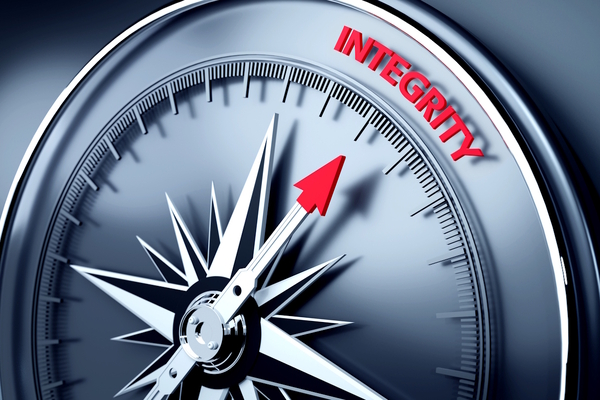Sustainable practices: moving from jargon to action in B2B

Sharon Curr at Merkle B2B argues that businesses need to move away from paying lip service to sustainable initiatives and embrace effective strategies for action instead
Over the past ten years, sustainability has moved from being the domain of a few brave brands to an imperative on boardroom agendas all over the world. Business leaders recognise the value of effective ESG practices to reduce carbon footprint and costs alike.
A recent report from McKinsey highlighted that 63% of ESG propositions have a positive impact on equity returns, improving both investment and top-line growth. The opportunity offered by sustainable practices is undeniable.
However, implementing effective ESG practices presents a huge challenge for B2B brands. Buyers will not stand for jargon, inertia, or false promises. It’s not enough to be told conversations are happening: customers need to see action.
And the clock is ticking. Earlier this year it was announced that global warming is set to break the key 1.5C limit for the first time within five years. For under pressure businesses to strike the right balance between results and realism they will require a deep understanding of the B2B market.
Leaders need to go back to the basics, understanding what buyers want when they want it to unlock both financial and reputational success.
Show and tell
In the past, environmental goals have been perceived as ‘nice to have’ but costly to implement. In reality, business and ecological goals are not mutually exclusive. Marketing with purpose can bring significant benefits to profitability as well as the planet.
In a study conducted by Edelman, 71% of participants agreed that ‘companies which place profits over people will lose their trust forever’ (Edelman Trust Barometer, 2020). Partnering with or using a company with vague environmental governance rings alarm bells with a media storm only a tweet away.
That being said, it’s human nature to want to see evidence. Leaders are under pressure to be bold and showcase their wins and need the right tools to do this effectively. When customers, investors and employees see positive pay-off, motivation for change becomes far easier.
Then, sustainability becomes an intrinsic part of every planning conversation, not tagged on as an afterthought.
It’s not just Gen Z with green thumbs
It’s true that climate anxiety is particularly rife for Gen Z, impacting attitudes to work and personal life as a result. A study conducted by Bupa highlighted that 64% of 18 – 22 year olds felt it was important for their employers to act on environmental issues.
But what we are seeing now is widespread adoption of this attitude across generations. Merkle B2B surveyed 3,622 buyers and users of B2B products across the world, and found that across age groups, “softer” decision drivers were of elevated importance.
Key decision drivers for B2B buyers today included “takes care of its suppliers, partners, and communities,” “is committed to reducing its environmental impact,” “is known as being a good employer,” and “has a culture of diversity and inclusion.”
Importantly, these decision drivers were found to be significantly more important to a winning outcome in 2023 versus 2022. The “be-kinder” legacy of lockdown, coupled with generational shifts in global business culture has meant that emotional experiences are fusing with brand identity. B2B buyers are closer to consumers in attitude, where decisions are highly impacted by personal values and ethics.
To succeed in this space, businesses need to create experiences to match. They need to anticipate what buyers will think and feel ahead of time, offering buying journeys that are genuinely personalised.
Achieving personalisation can seem daunting when the average B2B buying journey takes 350 days on average and is highly complex. Leaders can look to technologies such as AI, next-best action tools, and integrated experience clouds for insight.
Harnessing all that new tech has to offer will allow businesses to not only create connected customer journeys, but also recognise trends. In a world where expectations are constantly shifting, real-time data provides much-needed insights into buyer psychology.
Honesty is the best policy
An over-saturated online space means that competition for B2B brands has never been more intense. One misstep and a buyer’s faith in a brand could be lost forever. In 34% of decision journeys, the incumbent lost out in 2023 versus only 29% in 2022.
Even leading brands cannot rest on their laurels. They need to be honest about areas for improvement and draw up ESG plans that are scalable.
That’s especially true given the number one most important factor influencing brand success this year. Safety. B2B buyers are placing the most importance on being made to feel safe when signing a contract. Feeling safe is an outcome and is achieved as the result of actions and behaviours.
So, lack of visible strategies when it comes to sustainability could send a buyer elsewhere. The introduction of recent legislation, such as the EU’s Corporate Sustainability Directive, has only increased buyer nervousness as every decision is held up to the light. Added to this, B2B buyers are traditionally cautious of change, and won’t feel confident in decisions unless they are educated.
When businesses are empowered with meaningful insights, they gain a forensic understanding into what buyers are looking for to win their confidence. Strategy without data is just an opinion.
Equipped with insights, leaders can understand service models needed to deliver on customer expectations and ensure messaging is tailored to particular buyers. Tracking customer satisfaction and loyalty over time enables improved interactions at key touchpoints during the customer journey, but also create a ‘birds-eye’ view of perceptions and product performance overall.
It’s as simple as this: without understanding the buyer, you can’t win their trust. You need to know what motivates them, but this goes beyond a simplistic grasp of trends.
In 2023, one thing is clear: being a force for good is good business. The caveat being that sustainable practices are implemented with a genuine desire for change. As global business culture continues to evolve at a rapid pace, B2B brand experiences will struggle to keep pace if they cannot match inflating customer expectations.
To keep pace in this increasingly demanding environment, utilising data tools that facilitate understanding of what buyers want from minute to minute will be key. The B2B buyer of today wants to see transparency, evidence of change and alignment with their own personal values and ethics.
When businesses empower themselves with knowledge, their ability to create long-standing buyer relationships becomes limitless.
Sharon Curr is Brand Experience Strategy Director at Merkle B2B
Main image courtesy of iStockPhoto.com

Business Reporter Team
Most Viewed
Winston House, 3rd Floor, Units 306-309, 2-4 Dollis Park, London, N3 1HF
23-29 Hendon Lane, London, N3 1RT
020 8349 4363
© 2025, Lyonsdown Limited. Business Reporter® is a registered trademark of Lyonsdown Ltd. VAT registration number: 830519543





